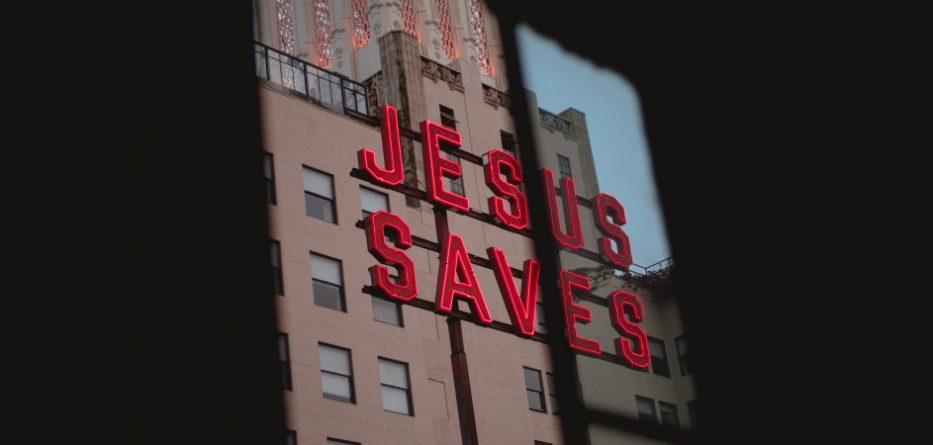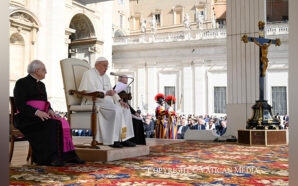Homily for the Thirteenth Sunday in Ordinary Time Year A 2020
Readings: 2 K 4:8-11,14-16; Rom 6:3-4,8-11; Mt 10:37-42
28 June 2020
This weekend we mark the 8th anniversary of the death of our beloved Peter Steele, priest, poet and prophet. The Provost Sean Burke, on the urging of Professor Margaret Manion IBVM, has asked that we remember Peter at this Eucharist. Peter was the Jesuit scholar in residence here at Newman College for many years having spent a lifetime as a teacher and professor in the English Department at the University of Melbourne. Peter’s favourite platform was this pulpit in the Chapel of the Holy Spirit. In one of his last homilies here, he mused, ‘We might say that Christ is part of the eloquence of God.’ The centrepoint of his day was the celebration of the Eucharist usually at this altar or in the Lady Chapel here at Newman.
LISTEN: https://soundcloud.com/frank-brennan-6/homily-28620
At Peter’s funeral held in this chapel, Peter’s fellow novice Brendan Byrne who entered the Jesuits on the same day as Peter in 1957 said: ‘There is a sense, I’m sure, in which every poem that Peter wrote was an instance of the Word becoming flesh. Our Irish novice master, Ned Riordan, whom Peter loved and admired as much for his wit and intelligence as for his holiness, once made a throw-away remark that greatly intrigued him: “Where most people look out a window and see a cow, a saint sees a creature”. Peter looked out at the world and acquired from his voracious reading an incredible knowledge of anecdotes and facts—quaint, technical, arcane—most of them remote from anything overtly religious or theological, and found in them a spark of the divine glory.’
Today’s gospel recounts the end of Jesus’ missionary discourse in Chapter 10 of Matthew’s gospel. There’s a string of hard sayings in which Jesus instructs his disciples to prefer him over everything else and over everyone else including mothers, fathers, sons and daughters, taking up the cross and following him. But then there is the consolation that the one who welcomes us welcomes Jesus and the one who sent him. And any of us who give as much as a glass of water to one trying to follow Jesus will be rewarded. There is no satisfying rationalisation of these collected sayings. You are left with a sense that there will be times when the going gets tough but that there will be consolations along the way, consolations which are not just temporary gratification but abiding assurance of God’s presence and grace. In today’s second reading, Paul tells the Romans: ‘you must consider yourselves to be dead to sin but alive for God in Christ Jesus’.
This past week I have been at the bedside of a Jesuit mate Michael Kelly who at short notice had to have his left leg amputated. And he is not out of the woods yet. Michael has spent years offshore, developing international networks for Church communications and assisting desperate refugees to resettle in various parts of the globe. While confined to hospital up in the Hunter Valley, a couple of hours north of Sydney, he and I received a note from the Jesuit musical composer Chris Willcock recalling the stations of the cross composed by Peter Steele when he was scholar in residence here in 2007. These stations of the cross were composed on commission for the World Youth Day in Sydney with Pope Benedict XVI. Chris drew our attention to Peter’s reflection on the 11th station: ‘Jesus Speaks to Mary and John’. Peter wrote: ‘At the foot of the cross, Mary and the disciple John might stand for all of us. Jesus had both given them much, and asked much of them. Now he consigns each of them to the other’s care. Mary is his family, John is his friend, and in the absence of their Lord they must set about the business of fostering their own small segment of the human community, in his name. This is in effect the last will of Jesus, and the charge of mutual care given then by the dying man goes on echoing down to our own day.’
This is the prayer Peter composed for that station of the cross featuring Jesus, family and friends: ‘Lord Jesus, to be open to real relationship is to risk being hurt – as happened to Jesus, to Mary, and to John. May we not stay sealed off from one another for fear of that hurt. You, the wounded Lord, the displayer of scars, do commit us to one another’s care. May we be blessed by the company, and the lasting care, of all your holy ones.’
At the time of Peter Steele’s death, Michael Kelly wrote of Steele’s life as knowing ‘the pain that challenges love and kills trust: disappointment with his brothers, frustration with his own limitations; indulgence of his considerable passions; the Cross of the unstinting love of his many friends, some of whom didn’t reciprocate. But no matter what the fare, Steele was always ready to take it because for him, it was the path to something better.’ Michael’s insights are all the more poignant when he lies on a hospital bed having been so cut by the surgeon’s knife, contemplating mortality as most of us need not do so often and so immediately. After his surgery, Michael, with all the good humour he could muster in such circumstances, recalled Peter Steele’s simple description of the ageing process: ‘It’s when bits start to fall off and other parts don’t work.’
In 1989, Peter as Jesuit Provincial took the bold step of calling together for the first time all the Jesuits in Australia. He described us as a province on mission to the world. He encouraged us to be genuinely committed to sacrificial love of one another, educating in the Good News and its consequences those drawn to hear it, standing with those in special need because Christ has stood with us, being at once at the service of the local Church and faithful to a universal vision, while discerning daily the actions of God and the needs of humanity in our world.
A year after the meeting, he wrote to us all, reflecting on the state of Australian society. He said, ‘Australia does not need to exist in a state of sterility; the desert does not need to be our story. Do pray, talk and plan, so that we may become what we were always meant to be – a Holy Land.’ Enunciating his vision and his dream for his country, he wrote: ‘I am trying to have us gaze with fresh eyes at the culture which we inhabit, and which we help to constitute. Personally, I love it above any other, but I see it as deeply in need of conversion, whether we look to the richest or poorest, the most self-possessed or the least.’
In one of his last poems entitled Rehearsal, Peter is in his flat here at Newman preparing a meal, recalling the many places to which he will not be returning, preparing to add the mint to his recipe:
But here’s the mint still on my hands. A wreath,
so Pliny thought, was ‘good for students,
to exhilarate their minds.’ Late in the course,
I’ll settle for a sprig or two –
the savour gracious, the leaves brimmingly green –
as if never to say die.
In this time of the COVID pandemic, continuing to mourn the passing of the irreplaceable Peter Steele, and with a vital globetrotting Jesuit like Michael Kelly laid low with an amputation, we might need to be more satisfied than ever with just a sprig or two. As family, friends, and disciples of the Lord, let’s attend to the gracious savour and take in the brimmingly green leaves about us. May we not stay sealed off from one another for fear of being hurt. May the Lord commit us to one another’s care. May we be blessed by the company, and the lasting care, of all God’s holy ones.
Fr Frank Brennan SJ is the Rector of Newman College, Melbourne and the former CEO of Catholic Social Services Australia (CSSA).








